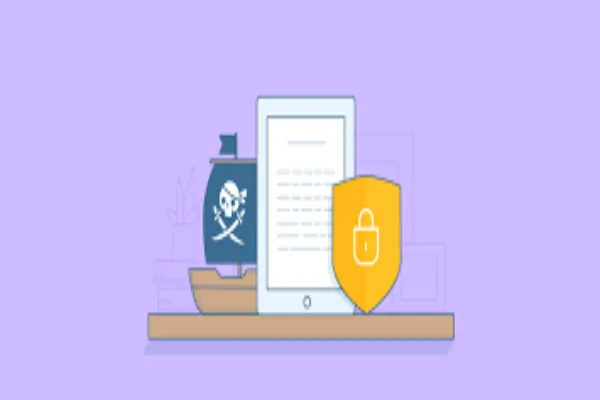Software Piracy – What it is and how to protect your digital products

In a world where digital products are as valuable as physical ones, software piracy remains a pressing concern. Be it a small business or a multinational tech firm, software piracy can cause massive financial losses, security vulnerabilities and stifled innovation. With piracy techniques becoming more sophisticated, it is essential for developers and companies to understand how piracy works and more importantly, how to stop it.
What is software piracy?
Software piracy is the unauthorized copying, distribution, or use of software. This can range from sharing a single licensed copy with others to selling counterfeit versions of paid software. Although it may seem harmless to some users piracy is a form of intellectual property theft and violates licensing agreements and copyright laws.
There are several ways in which piracy is done:
- End-user piracy: Distribution or installing software in quantities greater than what the license allows.
- Counterfeit software: Replicated software packaged and marketed as authentic.
- Hard disk loading: Unauthorized loading of software onto computers for sale.
- Internet piracy: Downloading pirated or cracked software from the internet.
- Client-server overuse: Excessive use of software on a network beyond what is allowed
For businesses, piracy is not just about lost revenue; it is also about reputational damage and compromised security .
Why Software Piracy Is a Growing Threat
The level of software piracy globally remains high, especially in developing economies. In the US alone, businesses lose billions of dollars annually to pirated software. As cloud services and digital distribution become more common so do methods of piracy in the form of license key generators, cracked executables, and torrent-sharing portals.
The threat is not only financial . Pirated software typically contains embedded malware, spyware, or ransomware that can spread to users’ systems, steal data, or cause irreparable damage. Piracy causes:
- Lower lifetime value of customers
- Increased support costs
- Inability to track user engagement
- Diluted brand value
Legal and Ethical Implications of Piracy
Software piracy is illegal under the Digital Millennium Copyright Act (DMCA) and other intellectual property laws. Individuals and businesses caught using pirated software may face lawsuits, penalties, and even criminal charges. Beyond the legal risks, using pirated software undermines the effort, creativity, and innovation of the developers who built it.
Ethically, it discourages the growth of smaller developers and startups that rely on fair compensation to sustain and evolve their products. Encouraging legal software use is vital to maintaining a healthy, innovative tech ecosystem.
How to Protect Your Software from Piracy
With piracy so widespread, the question for developers and publishers becomes: How do you protect your software without compromising the user experience?
Here are some essential piracy protection strategies:
1. License Management
Use license keys to restrict usage based on terms such as the number of users, devices, or duration. Validating keys with a central server can help detect and prevent overuse or unauthorized access.
2. Code Obfuscation
By making your code difficult to read or reverse-engineer, you deter crackers from modifying or bypassing licensing mechanisms.
3. Online Activation
Requiring users to activate the software via an internet connection adds a layer of verification and helps track valid installations.
4. Hardware Locking
Some software binds a license to specific hardware (CPU ID, MAC address), making copied versions unusable on other machines.
5. Frequent Updates
Regular updates that check for valid licenses and deactivate pirated copies are a smart deterrent. They also keep users secure and patched against vulnerabilities.
6. Watermarking and Tracking
For B2B tools or content-based software, invisible watermarks or telemetry can help trace piracy origins or misused licenses.
7. Legal Enforcement
Using takedown services to remove pirated content from websites and torrent platforms can help slow the spread. In the US, issuing DMCA notices is a common and effective method.
Bytescare: Your Piracy Protection Partner
If you are looking for a scalable, smart solution to software piracy, Bytescare offers advanced anti-piracy tools to protect your digital assets. From license protection to takedown services, Bytescare helps software developers and publishers maintain control over their IP.
For US-based companies, Bytescare’s platform provides automated monitoring across the web, proactive piracy detection, and legal takedown enforcement, all with a simple dashboard. It is trusted by businesses across the globe to secure SaaS products, mobile apps, and downloadable software.
How Businesses Can Encourage Legal Software Use
While protection strategies are important, education and accessibility play a big role in reducing piracy. Here’s how companies can promote legal software use:
- Offer free trials to let users experience the product before buying.
- Provide tiered pricing for students, small businesses, or personal users.
- Use subscription-based models to make software more affordable.
- Educate users about the risks of pirated software, including security threats.
Combining protection with accessibility ensures users get value while developers are rewarded for their innovation.
The Cost of Ignoring Piracy
Think software piracy is just a nuisance? Consider this:
- Microsoft reportedly loses over $10 billion per year due to piracy.
- 37% of software in circulation is unlicensed, according to BSA reports.
- Over 60% of pirated software contains malware or data-stealing spyware.
Ignoring piracy means handing over your product to criminals and potentially putting your users at risk. It weakens your market position, reduces revenue, and damages long-term growth.
Final Thoughts: Invest in Protection Before It is Too Late
As the digital economy grows, so does the importance of protecting your software from piracy. Whether you are a solo developer or a software company, safeguarding your intellectual property is critical. By combining effective license management, user education, and trusted piracy protection tools like Bytescare, you can reduce the risk of piracy significantly while continuing to deliver value to your genuine users.
Need help securing your software? Get in touch with Bytescare and take the first step towards piracy-free growth. Protect your innovation. Grow your business. Say no to piracy.




